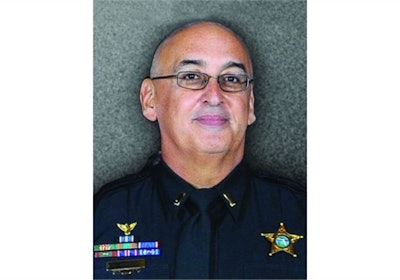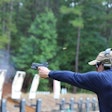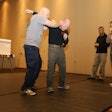
Briefings are an essential part of life in law enforcement. Briefings are conducted at many different levels and for different reasons. Sometimes they are necessary and sometimes they are just for show. Either way, you will have to do them, so you might as well do them well.
Information given out before the start of a shift is the most common type of briefing. After that, briefings involve operations or special events. Every supervisor must possess effective briefing skills that include an array of delivery techniques, the ability to communicate clearly and concisely, and a way to prepare for audience needs and questions.
Before you can pick your delivery method, you must first determine the purpose of your briefing. Is it merely to present the facts, or to give instructions, or are you proposing a solution to some type of problem? The purpose of your briefing forms the basis for your presentation.
Your next step is to define your audience. You must answer who is being briefed, what their roles are, and what you anticipate they will expect from you. If you fail to identify your audience correctly, your briefing will fall on deaf ears.
The third step is to find out where you will be giving the briefing. The location will dictate what type of equipment and presentation aids you might use. If it's a conference room or classroom, it may already be prepared for the use of laptops, Smart Boards, or other technologies. On the other hand, if you are briefing in a parking lot, right before you stage, a verbal briefing with a paper handout may be your only option.
Let me give you one strong word of warning here. Don't doom your briefing to death by PowerPoint. PowerPoint is a great tool but it shouldn't be your briefing. It should only help you highlight important facts, locations, or pictures. No one wants to sit through 60 slides of fluff while you read each one.
The principles of effective speaking apply to briefings. It doesn't matter whether it's an informal or formal briefing. Be clear and concise. You don't want to waste anyone's time, so limit yourself to facts, the minimum amount of information needed to get your point across, or a specific set of instructions.
Whatever presentation method you use, remember to structure your briefing by way of an introduction, body, and conclusion, and include a question and answer period. In addition, you should look for a framework for organizing your information that includes a chronological order, cause and effect, problem and solution, categories, or in a straight forward question and answer format.
It's always a good idea to cover a timeline. Present any background information that is necessary to bring the audience up to present day. Break down any large pieces of information into usable chunks. If possible, organize your briefing by position, groups, or individual missions. That way those being briefed don't get lost in information that doesn't apply to them.
Always be prepared to handle questions. Anyone being briefed expects you to have the answers. Also, don't allow anyone to take over your briefing. There always seems to be one person in every briefing who either has a million questions or tries to poke holes in your information. If after a few questions they won't stop, tell them you will speak with them afterwards to discuss their concerns.
Audience prep goes beyond just identifying your audience. You need to dig deeper to find out the best ways to reach them. There is a theory that suggests where you sit is where you stand, so audience perspective becomes what drives the train. For example, the way you brief a road patrol squad will be much different than how you would brief members of your command staff. An officer is usually interested in how things will affect them and the way they do their job. On the other hand, command staff are usually focused on how things will affect the agency. Do your homework and present the right information, in the right way, to the right people.
The reason people hate briefings is the same reason they hate meetings; they feel they can be a waste of time and they tend to run long. Briefings by nature are supposed to be brief. As a presenter, one way to ensure effective and concise briefings is to focus on who, what, when, where, why, and how. You should only brief when there is a need to do so. Don't be afraid to question whether conducting a briefing is the best method. Sometimes an email, memo, or face-to-face meeting with a few key players to answer specific questions will serve you better.
Amaury Murgado retired a senior lieutenant from the Osceola County (FL) Sheriff's Office with over 29 years of experience.

















